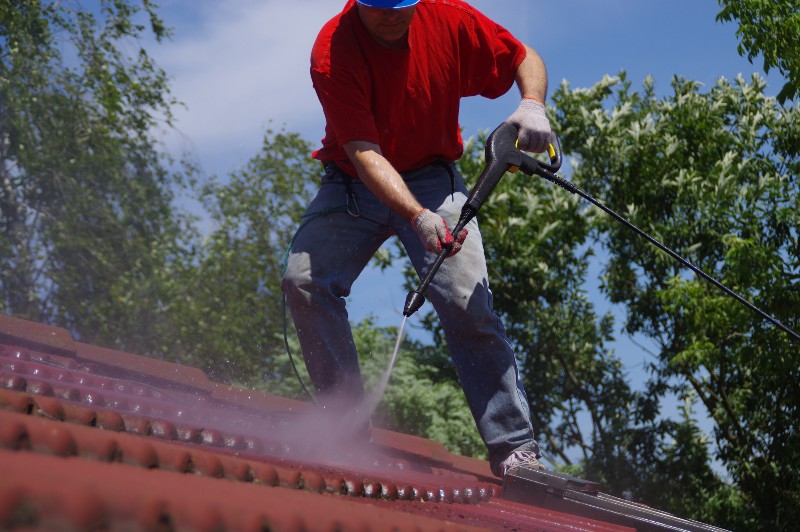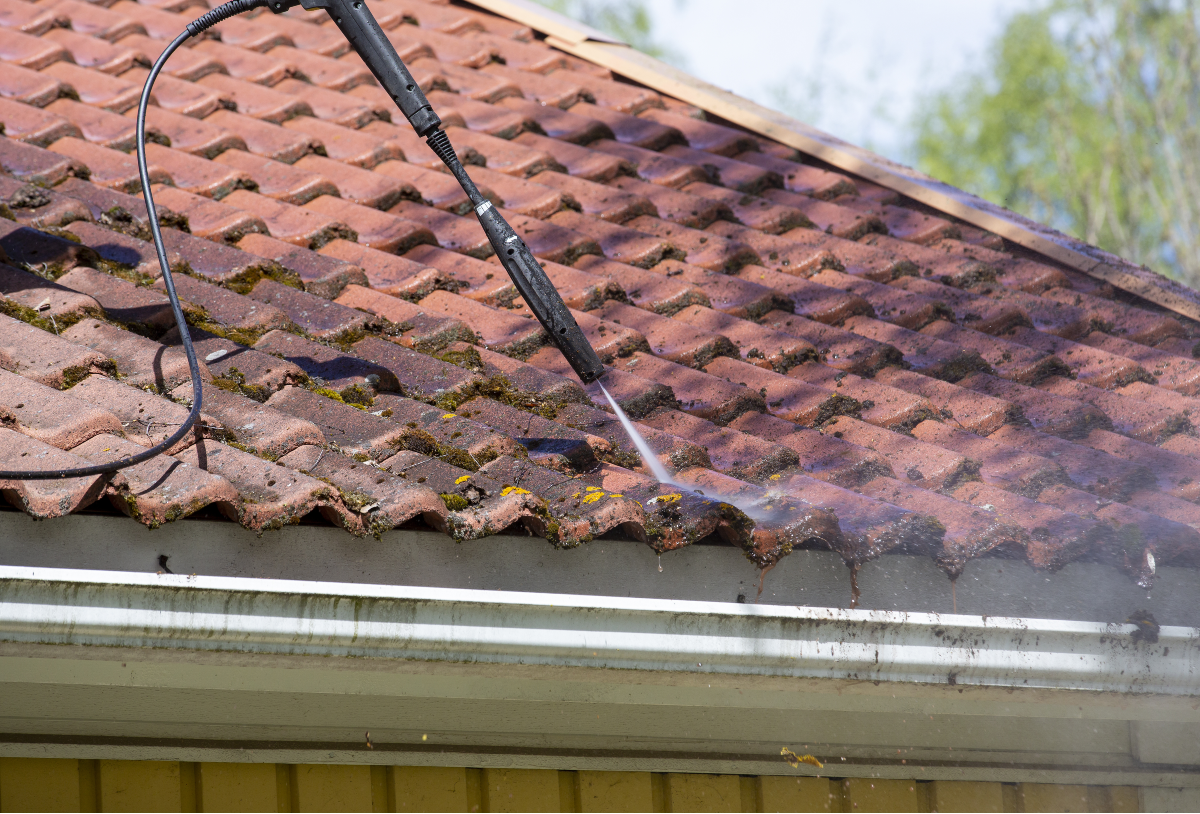Pressure washers are powerful tools that can be used to clean siding, concrete driveways and other durable surfaces. But are they safe to use on your home’s roof? Here’s what you should know about roof pressure washing, along with some tips for safely cleaning your shingles.
What Are They?
Also known as power washers, pressure washers are high-pressure mechanical sprayers used to remove grime, mold, dirt, mud and loose paint from surfaces and objects such as vehicles, buildings and concrete.
The standard pressure washer consists of a motor (either pneumatic, internal combustion, electric or hydraulic) that powers a high-pressure water pump, a hose and a trigger switch. Just as the nozzle on a garden hose is used to influence the velocity of water, a power washer’s nozzle creates velocity and high pressure.
Varying kinds of nozzles are available for different applications. Some nozzles form a water jet with a fan pattern or triangular plane; while others emit a jet of water that rapidly spirals in a cone pattern. Nozzles that deliver high flow rates produce a lower output pressure. Most nozzles affix directly to the trigger gun.
Thanks to their ability to focus water using extreme pressure, power washers are powerful tools that can strip gunk, grime and even paint from hard surfaces. At the same time, they have the ability to damage the underlying surface, especially if you use the wrong tip.
Can You Power Wash Roofs?
Composite or asphalt shingles are the most commonly used roofing material throughout the United States. In simple terms, asphalt shingles include a base layer and a top layer. The top portion is left exposed to the elements and coated with tiny granules of quartz, schist, brick, ceramic or stone. This is why new shingles feel like rough sandpaper. The purpose of the outermost layer is to add color to the shingle, reduce UV deterioration and protect the underlying asphalt core. Without them, your roof will degrade much more rapidly.
Unfortunately, a focused stream of water from a pressure washer is likely to strip a significant portion of these granules from your roof. Pressure washers are so powerful, in fact, they can tear shingles apart and even puncture holes in the underlying deck. In some parts of the nation, concrete or clay tiles, metal roofs or wood shingles will be more common; but even these are vulnerable to damage from pressure washers, which are powerful enough to crack tiles, dent metal and even cut through human skin.

How to Clean Your Roof (Without a Pressure Washer)
If you’ve noticed dirt or discoloration on your shingles, you don’t need a pressure washer to get it clean. A simple garden hose should be enough to remove dirt, while soapy water and a coarse brush should be enough to scrub away stubborn grime. If you still notice spots of discoloration, your roof is likely infested with algae or moss.
Whether your roof stains are caused by moss or algae, you need to use a special solution to kill the organic growth in the following manner:
- Create a solution of 50% bleach and 50% water inside a spray bottle.
- Access your roof using a ladder and spray the shingles with the solution.
- Allow the solution to sit for approximately 15 minutes.
- Rinse the shingles using a low-pressure garden hose. Do not use a pressure washer or you could damage your shingles.
If the organic growth is extensive, you may ultimately need to replace your roof. In this case, you should consider selecting dark shingles to help conceal any future growth. You can also install shingles equipped with copper granules designed to prevent organic growth.
While atop your roof, carefully inspect it to see if you notice any loose or torn shingles or flashing. Even the smallest amount of damage can result in expensive mold infestations. With this in mind, always contact a professional roofing contractor to repair existing damage, no matter how small.
A locally owned Colorado company, A to Z Roofing specializes in reliable residential roofing and repair. A trusted, reputable contractor, we’ve been operating continuously all throughout the Front Range for nearly three decades, serving the needs of Colorado residents and business owners. Contact our team of skilled professionals to learn how we can restore, repair or replace your damaged or aging roof.

